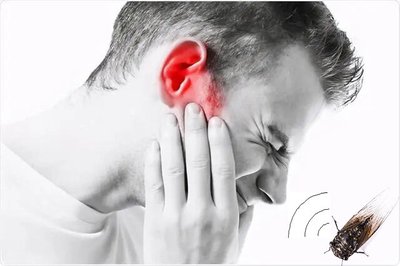
You’re sitting quietly sipping tea when you notice it—a faint, high-pitched ring in your left ear. At first, you dismiss it as a passing sound, but days later, it’s still there: when you wake up, watch TV, even try to sleep. If you’re over 50 dealing with constant left-ear ringing, you’re not alone. Tinnitus (the term for persistent ringing, buzzing, or humming) affects nearly 1 in 3 American adults over 55. It’s rarely serious, but it can disrupt daily life. Let’s break down what the ringing means, how to tell if it’s age-related or needs medical attention, and how to find relief.
First, tinnitus isn’t a disease—it’s a symptom of an underlying issue. For older adults, common causes tie to age-related hearing changes, but left-ear-specific tinnitus can have unique triggers. Let’s start with the most harmless ones.
The top cause of tinnitus in adults over 50 is age-related hearing loss (presbycusis). As we age, tiny hair cells in the inner ear (which convert sound waves to brain signals) wear out. When damaged—especially in one ear—your brain “fills gaps” with ringing. Why your left ear? You might favor your right ear (e.g., holding phones there), so left-ear cells show damage later. Or past left-side noise exposure (lawnmowers, concerts) is now visible. Age-related one-ear tinnitus is gradual, rarely worsening suddenly, and not serious.
Another common trigger: earwax buildup. Older adults make less earwax, but what’s produced is drier and more likely to clog the ear canal. This pressure on the eardrum and inner ear causes tinnitus—often in one ear. You may also notice mild hearing loss or a “full” feeling. The fix is simple: a doctor or audiologist safely removes wax (never use cotton swabs—they push wax deeper). Ringing usually fades in 1–2 days.
Medication side effects also cause left-ear ringing for many older adults. Over 200 medications (e.g., high blood pressure drugs, arthritis painkillers, antidepressants) list tinnitus as a side effect. High-dose aspirin, certain diuretics, and some antidepressants irritate the inner ear. Why left ear? It’s just how your body reacts—ears vary in drug sensitivity. If you started a new medication when ringing began, talk to your doctor: they may lower the dose or switch drugs.
Now, when might left-ear tinnitus signal something serious? Watch for these red flags:
- Sudden, loud ringing (e.g., starting overnight) with dizziness, vertigo, or sudden hearing loss. This could mean vestibular neuritis (inner ear nerve inflammation) or Meniere’s disease (inner ear balance/hearing disorder). Both are more common over 50, treatable, but need quick care to avoid long-term hearing loss.
- Pulsatile tinnitus (ringing matching your heartbeat). A thumping/whooshing sound may signal blood vessel issues: narrowed arteries or a benign acoustic neuroma (tumor pressing on ear blood vessels). Rare, but check if the sound gets louder when lying down/exercising. A doctor can order a CT/MRI to rule this out.
- Ringing with pain or discharge. This points to an ear infection. Less common in adults, but older adults (especially with diabetes or weak immune systems) get them. Infections cause inflammation and tinnitus, plus pain, fever, or yellow/green discharge. Antibiotics are needed—see a doctor promptly.
How to tell “normal” vs. serious tinnitus? Track it: How long has it lasted? Is it getting louder? Do you have other symptoms (hearing loss, dizziness, pain)? Age/wax-related tinnitus is gradual, stable, and symptom-free. Sudden, loud, or symptomatic ringing needs a doctor.
To find relief from left-ear tinnitus—even age-related—try these steps:
- Manage background noise. Tinnitus worsens in quiet (e.g., bedtime). Use a white noise machine, fan, or soft nature sounds (ocean waves, rain) to mask ringing.
- Protect hearing further. Avoid loud noises (concerts, lawnmowers); wear earplugs if needed. Mild noise exposure worsens tinnitus, so prevention helps.
- Relaxation techniques. Stress amplifies tinnitus—many older adults notice it gets worse when worried. Try deep breathing, meditation, or gentle yoga. Guided meditation apps (some for tinnitus) or support groups also help.
If tinnitus disrupts sleep/daily life, your doctor may suggest sound therapy (soft sounds retrain the brain to ignore ringing) or CBT (changes how you think about ringing, reducing annoyance). Both are safe, effective for older adults.
Myth-buster: Tinnitus isn’t “just part of aging” you have to live with. Age raises risk, but steps like wax removal, medication adjustments, or sound therapy reduce ringing. Even if you think it’s “no big deal,” get a hearing check—an audiologist can find the cause and build a management plan.
At its core, left-ear ringing is your body sending a message: “Clean my ears” or “Adjust my meds.” Rarely serious, but worth noticing. With the right care, you can quiet the buzz and enjoy quiet moments again.
Here’s to clearer ears, calmer days, and less ringing—one step at a time.